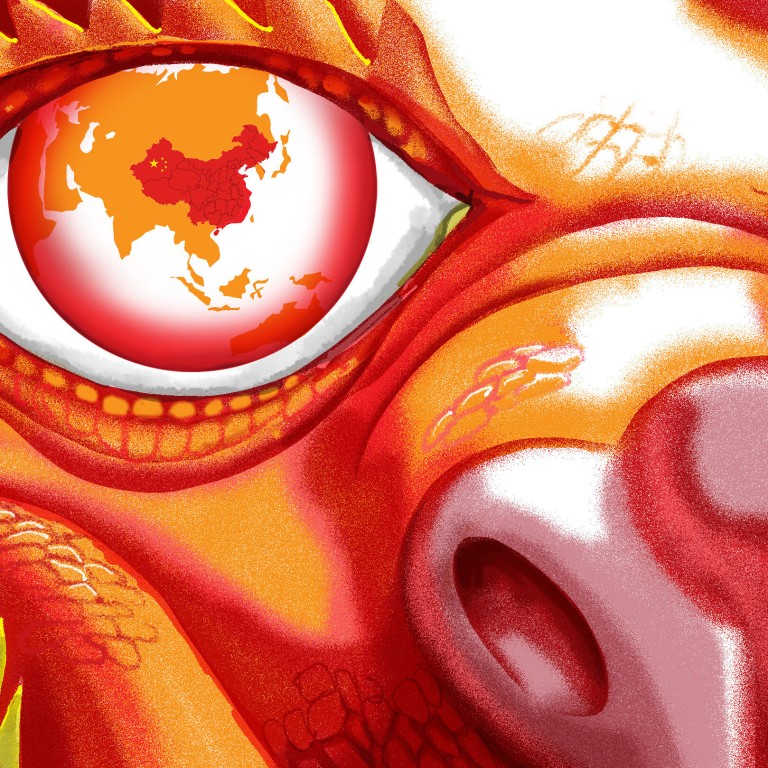
China is seeking to promote its world view and roll back Westernisation. Can it succeed?
- Beijing’s pursuit of global infrastructure expansion, economic primacy and a compelling China narrative are all part of the same mission
- If China reclaims the title of the world’s top economy, Chinese civilisation will spread once again – the dawn of an era as golden as the Han dynasty
“Every civilisation sees itself as the centre of the world and writes its history as the central drama of human history.” So wrote Samuel Huntington in his seminal The Clash of Civilisations and the Remaking of World Order.
Hard power begets soft power. Without the economic prosperity of Athens, Greek philosophy would not have taken root. Without the later Roman empire, Christianity would have remained a cult. The steam engine powered the universality of Western values.
When the West was doing well, everything was good; wars were just a mark of human progress. In the post-Cold-War era, the philosophical construct of liberal democracy has dominated the world’s polities. However, philosophical Westernisation is but the fruit of economic Westernisation, and it will wither with the decline of the West.
The global distribution of civilisations reflects the global distribution of power, according to Huntington. President Xi Jinping has stressed the need for China to develop a global voice proportional to its “comprehensive national strength and international status”.
This is a call to roll back the frontiers of Western civilisation, and validate China’s rise. The more China modernises, the more the rest of the world should reduce its focus on Western culture and practices.
In Xi’s era, China has tried to sell to the West the allure of “win-win” economic reciprocity, but the investment deal setback with the European Union has come as a slap in the face. It is clear that economic reciprocity neither earns respect nor allies.
There is an old Chinese teaching that a gentleman’s friendship is as insipid as water, and a petty man’s, as sweet as wine; in other words, a relationship that has to be sweetened by profit reflects mutual disdain for morality.
Since the onset of the pandemic, China has not only deployed diplomats in a publicity war but also launched a charm offensive, often in the West’s backyard. Yet it has become more isolated, even after offering massive amounts of medical supplies andvaccines toover 80 countries, and it cannot help but feel a sense of betrayal.
Are countries eating Chinese food and smashing Chinese bowls? Journalist Hu Xijin said as much on Twitter, in a heated response to headlines like: “A Glut of Chinese Masks is Driving US Companies Out of Business”.
In the meantime, Chinese expenditure to increase its influence in the United States ballooned from US$10 million in 2016 to US$60 million in 2020. Xinhua and CGTN have been tasked with telling China’s story to the world. Yet, this has been an uphill battle.
Xi is seeking a more enduring narrative of China but the vision for “a community of common destiny” lacks structure. China needs a cohesive philosophical framework for its trichotomy of authoritarianism, Marxism and Confucianism.
In its race to catch up economically, China has produced more than eight times as many science and engineering graduates as the US, but where are its definitive contemporary thinkers?
On May 31, Zhang Weiwei, a professor of international relations at Fudan University, gave a lecture to the Politburo on how to steer the civilisational discourse. The underpinning of Zhang’s case is straightforward: China’s exceptionalism and the return of history.
China should be confident because it has done well, especially compared to the US, and this success is because of its superior political governance.
Zhang’s influence may be discernible in a growing view among Chinese officials that the East is rising while the West is declining.
Xi wants Party cadres to translate the superiority of China’s system and manpower into narrative superiority, to help the foreign public understand a few important, if alien, concepts: why is the Chinese Communist Party so capable; why is Marxism self-actualising, and why is socialism with Chinese characteristics inherently good?
As part of this, Xi wants high-level Chinese experts to participate in international conferences, appear in the mainstream Western media and on TV, and voice their opinions.
Renmin University scholar Wang Wen has proposed mobilising China’s 1 million social sciences scholars for this cultural crusade.
However, does repeating the same narrative a million times make it correct or more appealing? It might only reinforce the same impression a million times. Culture, in its best form, flows freely, and quietly.
Xi is seeking to reorient the Chinese identity. As Huntington wrote, “We know who we are only when we know who we are not and often only when we know whom we are against.” In China’s case, the creation of the humiliating “other” has helped awaken Chinese unity.
China will seek to promote its world view, as the West has imposed its views on the world. Why keep a world view to oneself? This subjectivity won’t stop the two sides diverging or reduce misunderstandings. Rather, it sets up a battle for civilisational supremacy and historical righteousness.
Ronald Reagan sought to roll back Communism in the 1980s, and only half succeeded. Will China, under Xi, succeed in rolling back Westernisation?
Dr Shirley Ze Yu is a political economist, an Asia fellow at the Ash Centre for Democratic Governance and Innovation and a former Chinese national television (CCTV) news anchor



